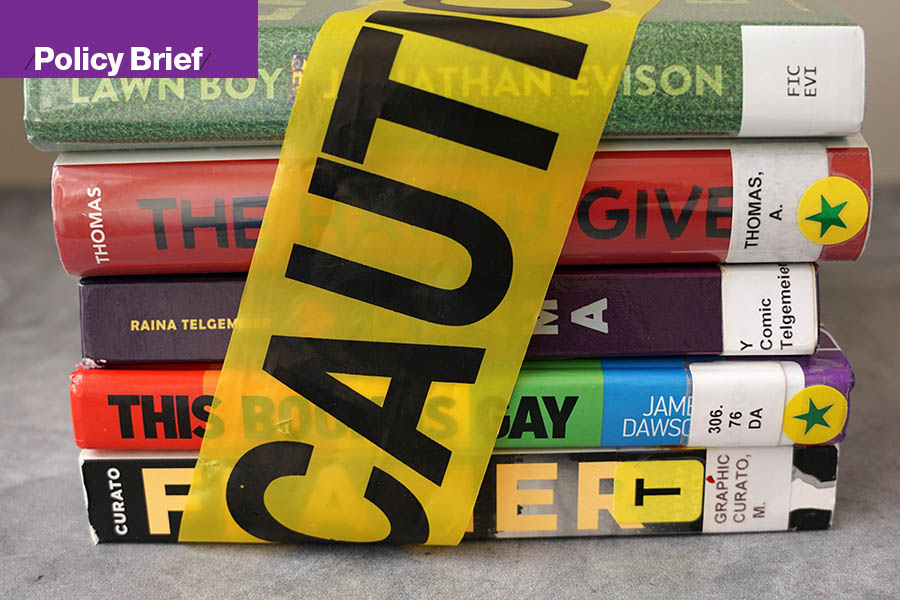Censorship attempts undermine our ability to shape the next generation of thinkers and leaders.
In today’s rapidly changing world, the cultivation of critical thinking, empathy and adaptability is essential for building a future workforce capable of thriving in an increasingly interconnected business landscape.
Yet American schools and libraries — including those in Oregon — are facing an intense culture war that jeopardizes this progress. The debate centers around protecting and serving youth while upholding constitutional rights and promoting high-quality literature and fresh, independent voices. In recent years, a political movement has emerged to challenge and cancel books, displays and events in schools and public libraries ostensibly on grounds of child welfare and parental rights. Last year the number of attempts to ban or restrict books in the U.S. reached a 20-year high. While challenges are lobbed from different political sides, PEN America reports that the vast majority of materials targeted for removal feature LGBTQ+ characters and/or characters of color, or they cover sensitive topics like race, racism, LGBTQ+ identities or sex education. Some groups fueling the censorship crusade have been associated with extremist organizations and anti-government groups. Conservative legislators in various states have enacted measures to make it easier to restrict access to content and even impose criminal penalties on library staff. Thankfully, recent federal court rulings have overturned and blocked censorship attempts in Texas, Virginia and Arkansas, emphasizing the significant First Amendment protection to which all are entitled — including minors.
Yet, while the core principles of free expression that define our nation have strong protection in the legal system, we must not take them for granted. Proactive awareness, resistance and rejection of censorship are imperative both for our individual liberty and economic future. In today’s marketplace, forward-thinking business leaders recognize that a diverse and inclusive workplace is not just a moral imperative but also a strategic advantage. Soft skills like teamwork, emotional intelligence and crosscultural understanding are now reported by Forbes to be more valuable to employers than technical expertise alone. Studies show that companies with diverse teams outperform their competitors financially.
Reading widely and thoughtfully cultivates those invaluable character traits that are essential for leadership roles. A study in the journal Reading Research Quarterly (2014) found that students who read diverse literature were more likely to demonstrate increased empathy and perspective-taking abilities compared to a control group. The American Library Association’s report, “Why Diversity Matters,” highlights the positive impact of varied literature on youth’s cognitive and affective development and how it fosters empathy, understanding and critical thinking.
A Puritanical restriction of reading choices risks hindering the development of these essential soft skills in students by instilling fear of reading and of challenging ideas. Literature that tackles sensitive topics encourages open dialogue and helps students become well-rounded individuals with the capacity to embrace different viewpoints. By nurturing empathetic and culturally competent individuals, businesses ultimately gain a labor pool with a deeper understanding of the world, greater flexibility and adaptability.
Rather than retreating from challenging conversations, a more productive approach lies in providing diverse reading options. A robust selection of classic, contemporary, popular and emergent literature allows students to explore different narratives with guidance from parents and educators, promoting an appreciation of language and storytelling and a love of reading, ultimately increasing resilience and competence in their interactions and relationships. One argument being made is that the materials being challenged are considered “pornography,” and therefore, this content is harmful to minors. But that characterization — and reader maturity — are highly subjective. These are assessments best left to individuals and their parents — not the government. Societal standards and norms change over time, often led by artistic expression in the marketplace.
Just as Elvis’ then-outrageous dancing now looks innocuous, classic books by writers such as Chaucer, Hemingway, Steinbeck and Vonnegut — that were once considered scandalous — are today known as important pieces of literature. And the Constitution requires that works are evaluated on literary merit as a whole, not merely by provocative passages taken out of context. Furthermore, respected therapists contend that the moral panic associated with children and awareness of sexuality is unfounded — and actually may increase children’s vulnerabilities to exploitation and abuse. For example, denying youth the pursuit of factual knowledge about their bodies discourages them from seeking professional and researched materials on the topic, or from discussions with parents and trustworthy adults. As Bronwyn Davies of the University of Melbourne has said, “What is dangerous, more than anything else, is the withholding of knowledge from children — the deliberate construction not of innocence but of ignorance.”
The battle for youth access to diverse literature in schools and libraries has profound implications for the future of our workforce and society.
We invite business leaders to join us, along with supporters such as Parents Defending Schools & Libraries (PDSAL.org), to champion the preservation of freedom of expression and advocate for nurturing a generation of employees equipped with empathy, critical thinking and adaptability. By protecting the sovereign right to read, together we can shape a more inclusive and prosperous future.
Perry Stokes is co-chair of the Oregon Library Association Intellectual Freedom Committee (OLA IFC), a standing committee empowered by the OLA Board to educate and support the value of intellectual freedom, and to help provide public oversight of any potential violations of the First Amendment in Oregon libraries.
Click here to subscribe to Oregon Business.






